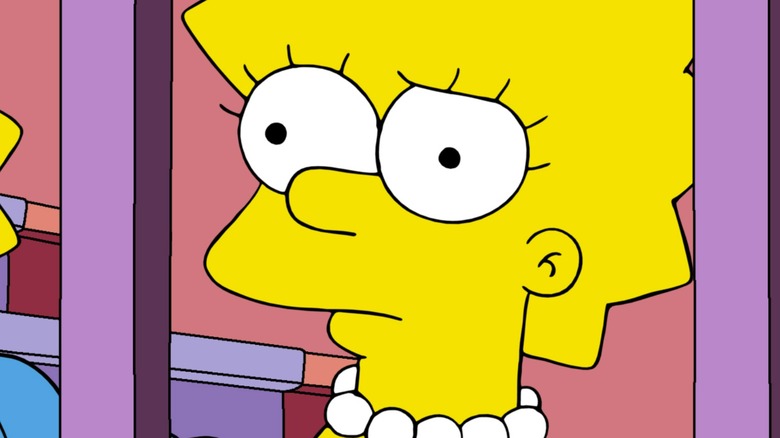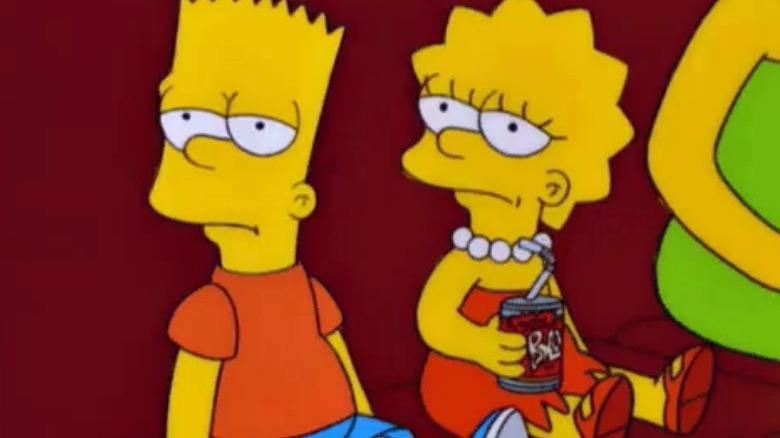The Unexpected Origin Of One Of The Simpsons' Most Iconic Catchphrases
With their popularity and potential unable to be contained by their quick appearances on "The Tracey Ullman Show," the Simpson family got their own television series in December of 1989. Appropriately titled "The Simpsons," the sometimes questionable program has since sent the title family into the realm of pop culture legend. The show is beloved the world over and displays no signs of slowing down, having already racked up an astounding 34 seasons and well over 700 episodes. To put it mildly, if you look up the word "enduring" in the dictionary, you should see the "Simpsons" logo right beside it.
As is the case with most pieces of media that stick around for decades on end, "The Simpsons" has found resounding success thanks to the combined efforts of a few individual factors. Unforgettable characters, ranging from Homer Simpson (Dan Castellaneta) to Troy McClure (Phil Hartman and later Castellaneta), hilarious background gags, shocking story moments, and more have all contributed to the longevity of "The Simpsons." Certain catchphrases are also to thank for the series' lasting relevance, with expressions like "Don't have a cow, man" and "D'oh" taking on a life of their own.
These and many other iconic catchphrases didn't exactly pop up out of nowhere. In the case of one, in particular, it has a rather unexpected origin that extends far beyond the "Simpsons" writers' room.
'Meh' goes back a long way
In 2021, famed comedy writer and longtime creative on "The Simpsons," John Swartzwelder, revealed the origin of "meh": a term of indifference or disinterest used by several characters on the show. "I originally heard the word from Howie Krakow, my creative director at Hurvis, Binzer & Churchill, in 1970 or 1971. He said it was the funniest word in the world," Swartzwelder told the New Yorker, adding that, truth be told, he has no idea who invented the term. "I got the impression it was already very old when Howie told it to me," he posits. Nevertheless, he went ahead and made it a fixture of the show.
As it turns out, the earliest usage of the term "meh" may date back all the way to the late 1920s. According to Slate, one of the first recorded definitions of the word comes from Alexander Harkavy's "Yiddish-English-Hebrew Dictionary," published in 1928. It's defined as a phrase meaning "be it as it may" or "so-so," which certainly lines up with how "The Simpsons" and the world population at large use it nearly a century later. Despite its inclusion in Harkavy's dictionary and later its prevalent use on "The Simpsons," it took until 2008 for "meh" to officially join the Collins English Dictionary.
Though it came to be long before them, thanks to John Swartzwelder and the influence Howie Krakow had on him, "meh" is now a part of the "Simpsons" legacy and our cultural lexicon.

